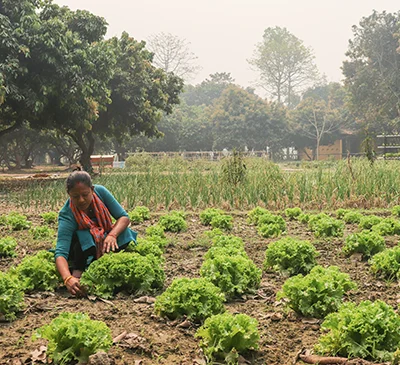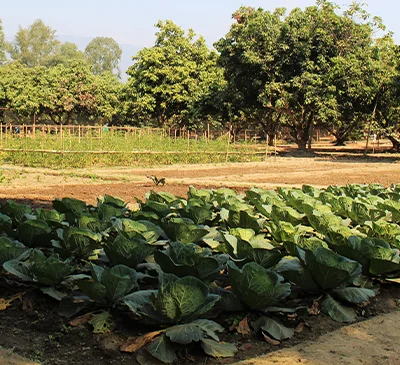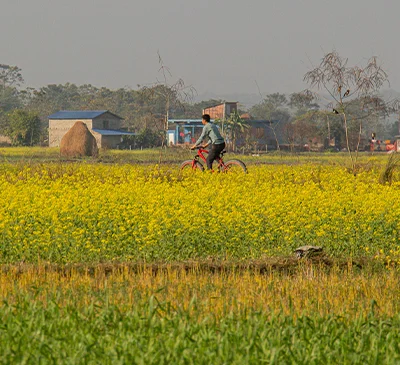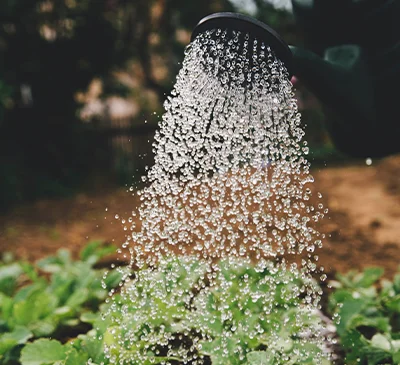Organic Garden
The Organic Garden in Unnati Cultural Village Harkapur, Nawalpur, has made significant improvements in infrastructure, crop diversity, and community engagement. It now features composting facilities, and shaded areas, and promotes agroecological principles. The garden also hosts educational programs and community events, fostering sustainability and community ownership

Organic Growth & Eco-Landscaping
27 March - 5 May, 2023
UNNATI’s organic garden now cultivates 17 vegetables and 6 herbs, including chilies, capsicum, eggplant, simi beans, and cucumbers. Beekeeping has been integrated using vermicompost and natural supplements. Fruit trees like avocado, lemon, red banana, and watermelon enhance the edible landscape. Bougainvillea plantations beautify key areas—main gate, open-air museum path, and Zen Garden. Additional eco-projects include thatch roofing, a lotus pond, and landscaped Zen spaces, all promoting sustainability and harmony with nature.

Sustainable Gardening & Herb Cultivation
6 - 18 February, 2023
UNNATI has developed permanent vegetable beds for cucumber, long gourd, snake gourd, and bitter gourd, along with bio-intensive beds for nutrient-rich asparagus growth. A variety of herbs like Italian and Thai basil, oregano, parsley, rosemary, sugar plant, peppermint, and chamomile have been seeded for culinary and tea use. Grafted rose plants are being grown for landscaping, and a bougainvillea trellis has been installed as a floral feature. Fresh organic produce and herbs are supplied twice weekly to Hotel Chitwan.

Regenerative Farming & Eco-System Development
9 - 22 January, 2023
UNNATI continues to advance its sustainable agriculture practices with new plantings of Marfa mustard, lettuce, pak choy, radish, pumpkin, long beans, coriander, mint, banana, asparagus, and mustard for oil. The hydroponic system is thriving and may be expanded during the monsoon season if needed. Post-harvest pruning of litchi orchards is enhancing sunlight for the lotus pond ecosystem. Key focus areas include plantation, fertilization, composting, hydroponics, lotus pond care, rabbit-goose unit reconstruction, strategic investments, and gallery development—strengthening UNNATI’s holistic approach to agri-cultural integration.

Soilless Farming & Sustainable Practices
3 – 23 December, 2022
UNNATI enhanced its eco-farming model by deep-cleaning the hydroponic system to prevent algae and preparing for new salad and strawberry batches. The team was trained in nutrient application, and a robust compost production unit was initiated using hot heap composting, vermicompost, and the Johnson-Johnson method—soon to include liquid fertilizers. Efforts continued in planting, beekeeping, and lotus pond maintenance, reinforcing UNNATI’s commitment to regenerative, resource-efficient farming.

